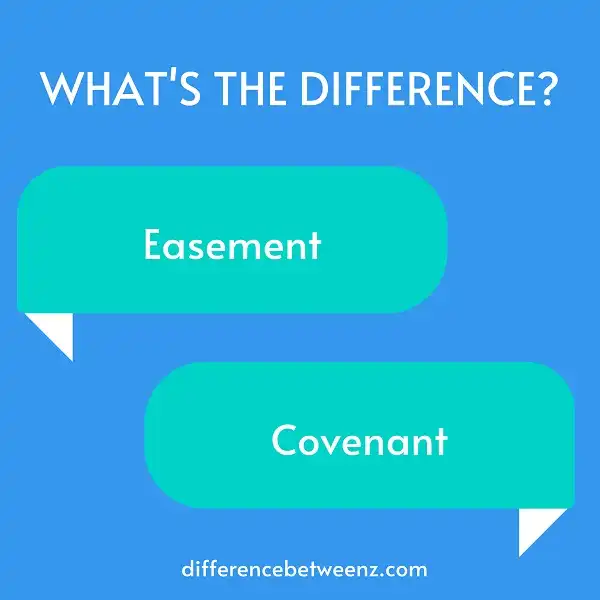Easements and covenants are both types of legal agreements, but they serve different purposes. An easement is a right to use someone else’s property for a specific purpose, while a covenant is an agreement to do or not do something on your own property. They each have their own benefits and drawbacks, so it’s important to understand the difference before you make any agreements.
What is Easement?
- Easements are a type of legal agreement that grants one party the right to use another party’s land for a specific purpose. The most common type of easement is an access easement, which gives someone the right to drive across another person’s property in order to reach their own land. Easements can also be used for utilities, such as pipelines or power lines.
- In some cases, an easement may be given for historical or conservation purposes. For example, an easement might be granted to allow people to walk across a piece of land in order to reach a hiking trail. Easements are typically created by deed and are generally considered to be permanent fixtures on the land. However, there are some circumstances in which an easement can be terminated.
- For instance, if the land is no longer being used for the purpose specified in the easement agreement, the owner of the land may be able to have the easement removed. Easements can be a complex legal issue, so it is always best to consult with an attorney before granting or accepting one.
What is Covenant?
Covenant is an agreement between two or more people. It is a formal, solemn, and binding promise to do (or not do) something. In the Bible, covenants are made between God and humans, or between humans. Covenants usually involve sacrifice or giving up something of value as a sign of the commitment being made.
For example, in the Abrahamic Covenant, God promised to make Abraham’s descendants into a great nation, and in return, Abraham agreed to obey God. Covenants often include a provision for punishment if one party breaks the agreement. The Covenant of Moses stipulated that if the Israelites disobeyed God’s laws, they would be exiled from the Promised Land. Covenants can be broken, but doing so has serious consequences.
Difference between Easement and Covenant
Easements and covenants are both legal agreements that affect the use of the property. An easement is a right to use someone else’s land for a specific purpose, such as accessing a shared driveway. A covenant is a promise to do or not do something related to your property, such as maintaining your front lawn.
Easements are typically created by deed, while covenants are either created by deed or implied through the actions of the parties involved. Easements can be released, but covenants generally run with the land and bind future owners of the property. Easements are governed by state law, while covenants are governed by contract law.
Conclusion
The main difference between an easement and a covenant is that an easement is a right to use the property of another, while a covenant is a promise not to do something. Easements are created by agreement or by law, while covenants are usually created by agreement. Covenants can be either positive or negative, while easements are always positive. Finally, covenants run with the land, while easements do not.


